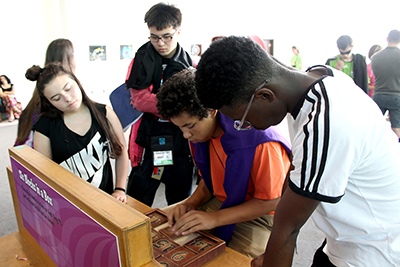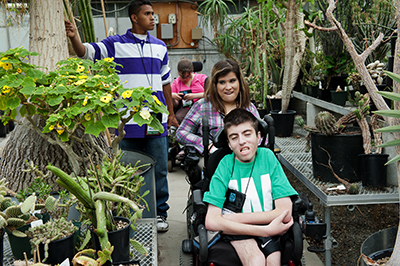Join Efforts to Make Informal STEM Learning Accessible

Learning about science, technology, engineering, and mathematics (STEM) can be fun, especially in informal settings outside of the traditional classroom. Informal settings may include places like museums, galleries, and science exhibits. People with disabilities often face access challenges as they explore informal learning settings. Access barriers may prevent a student from gaining knowledge and fully participating in various educational activities.
DO-IT’s Access to Informal STEM Learning (AccessISL; grant #DRL-1906147) project supports efforts to develop a capacity building model for making informal STEM learning (ISL) opportunities more welcoming and accessible to everyone- especially individuals with disabilities. All stakeholders are encouraged to join this effort, including students, teachers, professionals within ISL programs, and educators who train future ISL practitioners.
Student interns worked with project staff and educators to create a publication called Checklist for Making Informal Learning Accessible to Students with Disabilities. The checklist can be used by anyone interested in exploring access features at an ISL program. This resource helps users understand accessibility features of information technology, facilities, policies, staff training, and more.
AccessISL also maintains an online Knowledge Base that contains case studies, promising practices, and Q&As regarding accessible ISL and the accessibility of technology, college, and careers for individuals with disabilities. Below are examples of articles developed during the AccessISL project:

- How can informal STEM learning program support individuals with vision impairments?
- How can informal STEM learning program support individuals with mobility impairments?
- Visitor Voices: Sharing perspectives of museum visitors with disabilities
- Accessibility resources at Intrepid Museum
- Where can I learn more about accessibility and universal design of informal STEM learning programs?
People who are interested in accessible ISL are encouraged to join the AccessISL Community of Practice to participate in discussions and learn of opportunities to promote the increased participation of people with disabilities in informal science education offerings, training programs, and careers.